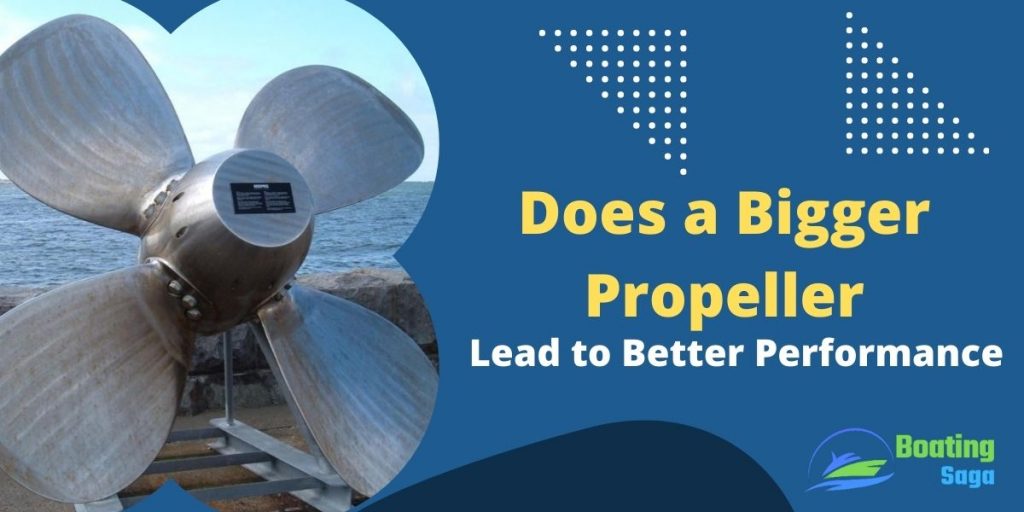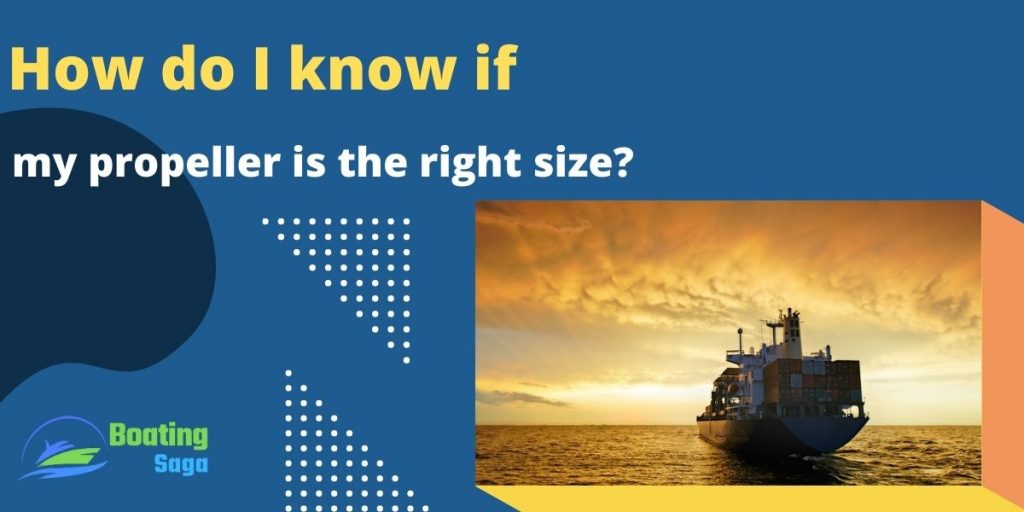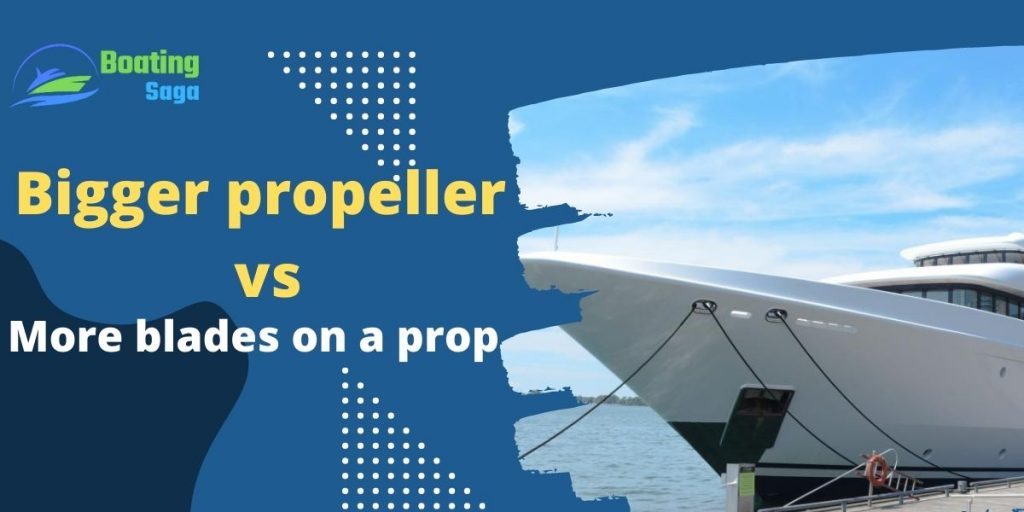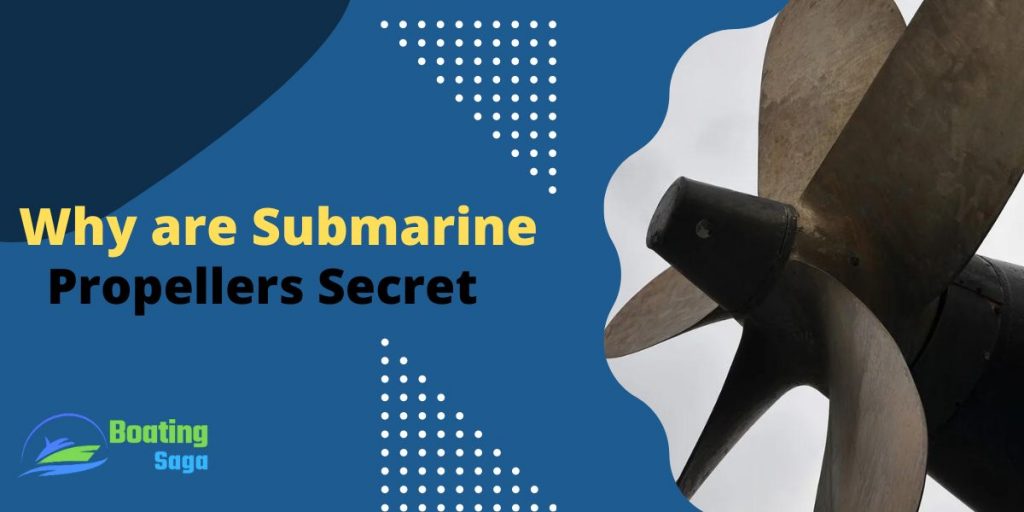
The size of a boat propeller is important for two reasons: the amount of thrust it can produce and the amount of drag it creates. A larger propeller can create more thrust, but it also creates more drag. In general, a larger propeller is better, but there are trade-offs to consider.
Is a bigger propeller better?
Larger propellers are generally easier to spin and they provide more thrust. This makes them ideal for boats that need to move quickly or climb up against strong currents. However, they also create more drag, which means the boat needs more power to move forward.
In addition, a larger propeller can be more difficult to control and it may not be suitable for smaller boats. It’s important to choose the right size propeller for your boat and your needs.
What happens if you boat prop is too big?
If you have a boat prop that is too big, you may be experiencing a number of problems. First, your engine may not be able to turn the prop at the correct speed, which can cause damage to the engine and reduce your fuel efficiency.
Second, if the prop is too big, it will create more drag on the boat, making it harder to move and increasing your fuel consumption.
Finally, an oversized prop can also make steering more difficult. If you are having any of these problems with your boat prop, it is likely that you need a smaller one.
What factors influence boat propeller size?
When it comes to boat propellers, size does matter. But what factors influence propeller size?
One of the most important factors is the horsepower of the engine. A higher horsepower engine will need a larger propeller to move the boat at the desired speed.
The type of boat also affects propeller size. Boats that are designed for speed, such as racing boats, will require a larger propeller than those used for leisure activities.
The weight of the boat is also a consideration when choosing a propeller size. A heavier boat will need a more powerful propeller to move it through the water.
The size and shape of the hull can also play a role in propeller selection. Boats with a deep V-hull need a larger and more powerful propeller than those with a flat bottom.
How do I know if my propeller is the right size?

When it comes to boat propellers, one size does not fit all. In order to ensure you have the right propeller for your boat, you need to know a few things about your vessel and how it handles.
The first step is to measure your boat’s engine horsepower and shaft diameter. You can find this information in your boat’s owner’s manual or by contacting the manufacturer. Once you have these measurements, use a propeller sizing chart to determine the correct propeller size.
Keep in mind that a larger propeller may not be the best option for your boat. A too-large propeller can cause the engine to work harder than necessary and lead to decreased fuel efficiency. It’s also important to consider the weight of your boat when selecting a propeller size. Heavier boats require larger props than lighter boats.
It is also important to consider how you will be using your boat. If you will be primarily using your boat in freshwater, you will need a different propeller than if you will be using it in saltwater.
What are the advantages of a bigger boat propeller?
There are a few reasons that you might want to consider upgrading your boat propeller to a bigger size. For one, a bigger propeller can provide more power and speed. This is especially important if you plan on using your boat for watersports or fishing.
A bigger propeller can also help you manoeuvre better in difficult water conditions. If you frequently travel in areas with strong currents or chop, then a larger propeller may be the best option for you.
A bigger propeller can help keep your boat steadier in rough waters.
Finally, a bigger propeller means that your engine can work less hard to move your boat. This means that you will use less fuel and that your engine will last longer.
The drawbacks of a bigger boat propeller
When you are looking for ways to improve your boat’s performance, you may consider buying a bigger boat propeller. However, there are some drawbacks to this option that you should be aware of.
First, a bigger propeller can be more expensive than a standard-sized propeller. Additionally, it may be difficult to find a bigger propeller that fits your boat’s engine and hull.
A bigger propeller can also create more drag on the boat if it’s too big, which can reduce its speed and fuel efficiency. In addition, a bigger propeller may not be compatible with your boat’s steering system, and it could increase the risk of damage to your boat and engine.
How can I make my propeller more efficient?

A propeller converts the rotational energy of a boat’s engine into forward thrust. A well-designed and well-maintained propeller can make a significant difference in a boat’s speed and fuel efficiency. There are several things you can do to make your propeller more efficient:
1. Make sure your propeller is the right size for your boat. A propeller that is too large or too small will be less efficient than one that is properly sized.
2. Keep your propeller clean and free of debris. Debris can cause the propeller to “pitch up” or “pitch down,” which reduces its efficiency.
3. Make sure your boat’s engine is running at the correct RPM. If the engine is running too fast or too slow, it will not be able to drive the propeller efficiently.
4. Make sure your prop is properly aligned with your boat’s engine. If it’s not aligned correctly, it will create drag and decrease your boat’s speed.
5. You can improve performance by using a propeller with the correct number of blades. A three-bladed propeller will be more efficient than a two-bladed propeller, for example.
How does blade thickness impact performance?
There are a variety of factors that go into propeller performance, including blade thickness. Boat propellers are typically manufactured with different thicknesses, and each thickness has its own benefits and drawbacks.
In general, thicker blades create more thrust and horsepower while consuming more fuel. They are also better at handling rough water conditions. However, they are also heavier and require more torque to rotate.
In general, a thicker blade will be better for boats that need to move large loads or travel at slow speeds.
Thinner blades generate less thrust and horsepower, but consume less fuel and are generally better at high speeds. They are also lighter and easier to rotate. Ultimately, the best blade thickness for a boat propeller depends on the specific application.
Related Question:
What is the difference between a propeller and a rotor?
Propellers and rotors are two of the most common methods for moving a boat through the water. They both have their advantages and disadvantages, but which one is right for you?
A propeller is a blade that is attached to a shaft that spins around to create thrust. This type of propulsion is most commonly used on boats and ships. Propellers are efficient at moving large objects through the water and can provide a lot of power. However, they can be difficult to maneuver and can be dangerous in shallow water.
A rotor is a spinning disc that creates lift to move a boat forward. This type of propulsion is often used on smaller boats because it is easier to maneuver and safer in shallow water than propellers. However, rotors are not as powerful as propellers and cannot move as large objects.
Bigger propeller vs More blades on a prop?

When it comes to boats, there are a lot of different options and characteristics that people can consider when making their purchase. Some people might be wondering if they should get a boat with a bigger propeller or one with more blades.
In general, having more blades on a boat propeller will lead to more thrust and better performance. However, it is important to note that this will also depend on the size and weight of the boat itself. Additionally, a bigger propeller might not be necessary for smaller boats since they don’t need as much power to move around.
Ultimately, it is up to the individual buyer to decide what is best for them and their boat. They should consider the size and weight of their vessel as well as what kind of performance they are looking for before making a decision.
Conclusion
It would seem that a bigger boat propeller does lead to better performance; however, this may not be the only factor to consider when purchasing a new propeller. There are many different types and sizes of propellers available on the market, so it is important to do your research and find the best propeller for your vessel.



Pingback: How Many Propellers Does a Cruise Ship Have: You Won't Believe? - BoatingSaga